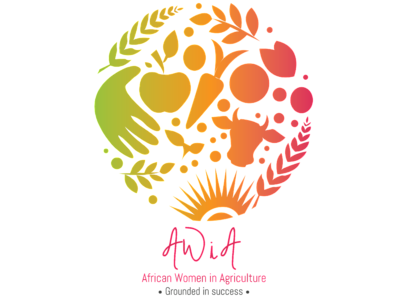Do you agree with what Government is doing for women in agriculture?
Posted by Janice Scheckter on 14 April 2022, 11:35 SAST

Minister Thoko Didiza: The Role of women in Agriculture
Remarks delivered by Minister Thoko Didiza on the occasion of a webinar on The Role of women in Agriculture
Program Director,
Fellow Panellists,
Senior Officials in the Department,
Our Partners,
Participants in this Webinar,
Osingaye, Women in Agriculture and Agri business
On behalf of the Ministry and department, we would like to welcome all of you in this Webinar. It is the conversation that we would like to have with you, not only in the month of August. The opportunities created by access to communication and information technologies have made it possible for us to dialogue more often. Presently, we have held webinars with farmers on preparing them to grow for the market across the country.
We want to appreciate that you have given off your time to be with us as our partners, GCIS, Food for Mzansi and Total I hope we will continue to walk the journey with you.
"Wathint' Abafazi, whathinta imboko, uZokufa "
These words have continued to reverberate in our ears as an affirmation of the power that women possess in transforming their own conditions and societies they live in. The commemoration of August the 9th ,1956 serves as an affirmation of the role that women continue to play in changing our socio-economic conditions today.
Our celebration and commemoration of the role that women played in 1956 does not negate the role that women played in the past nor the role that women play today and in the future.
Even before the formation of the liberation movements women were already organized and challenging policies that were inhumane such as the pass laws. Me Charlotte Manya Maxeke we celebrate this year, her activism in society and workplace is evidence of how women transform societies.
After the promulgation of the Native Land Act in 1913, women were at the forefront in waging struggles against land dispossession. The quest for women’s access to later was also reflected in the Women's Charter of 1954 before the drafting and adoption of the Freedom Charter in 1955. The fight against forced removals also had a women’s face. Mama Lydia Komape and Beauty Mkhize are amongst those we know. The late mama Sizane and women in the Rural Women’s Movement continue to wage struggles on land to this day.
Interestingly, Women's activism has been disruptive in a positive way. Women have not always followed the norm, but found alternatives on how to do things and achieve the same and even better outcomes. Women believe there are many alternatives in solving problems and arrive at solutions.
I have made these reflections in order for us to locate how women have disrupted the agriculture and agribusiness industry and claimed their right in strengthening our food systems as a country and globally.
Today, I would like to honour Dr Vuyo Mahlathi. She advocated for women's access to land and the transformation of Agricultural financial support. She understood the integrated nature of agriculture and her quest in transforming the food systems and the agriculture value chain. Her advocacy was drawn not only in the theoretical understanding of the Agricultural economy, but through experience as a participant in the sector. She understood the importance of localisation and strengthening food systems at local and national level.
She saw the value in the assets that women have in rural areas such goats. While goats provide milk and meat, their skins can be processed and other products can be made out of goat skins, like other livestock. But she looked at the mohair and how good quality mohair can be harnessed to create other goods such as cotton and textile. This idea created the value chain that may not have thought about at the time. Ivili Loboya was started in Butterworth closer to where her products could be sourced. Ivili loboya gave rise to Dedani Creations, a fashion line that has already started reaching local and external markets.
Another woman known to many of us, the current Chairperson of the Solidarity Fund, Me Gloria Tomato Serobe. As a founder of Wiphold with Louisa Mojela are known to many as corporate ladies that had broken the ceiling so that many of us can come through. They decided to invest in agriculture at primary level in South Africa and Lesotho rural areas. As corporate and successful business women in their own right, they were not deterred by the communal land tenure systems in these two countries that have a lot of complexities and scare a lot of investors away. They understood the importance of strengthening food systems as the ammunition to fight poverty, unemployment and under development. They saw an opportunity of industrialising these spaces which are dislocated from the current economic zones of our country.
They worked with local leaders and communities, but more importantly they worked with Imbokodo, the women who till the land for survival and food security and household level. Today, the villages of Centane in the Eastern Cape boasts of a production hub. It is not only the maze fields that we see, but today they have grain storage facilities and much needed infrastructure that save maze to avoid post -harvest losses
Kamohelo Bombe, a young woman in poultry from Gauteng Province has been advising young farmers to “hustle ", diversify, look for opportunities and have a drive if they are to succeed. She is farming with broiler chicken and decided slaughter and give package meat to the clients that she serves.
Bringing in the indigenous knowledge into the value chain, Ms Neliswa Malungane created Slimtone out of Avocado seeds as part of the pharmaceutical products. Battling with weight after giving to her beautiful kids, she remembered her grandmother’s product, today she has produced a product that sooner may be in the shelves of our retail shops. I have highlighted these women and what they do, not because they are the only ones, there are many women who have entered the sector and caused disruptions in a positive way. Their success does not mean they have not had challenges.
In their journey, they have had many partners, such as government, communities and private sector who have made it possible for them to succeed.
We want many of the likes of Kamohelo and others if we have to build an inclusive society. We need to be disruptive in a positive way by changing and improving our delivery systems and products as government in order to remove the blockages that may be there.
What then are the constrains that we are addressing in order to support women in agriculture?
Land Question:
The issue of land access and ownership remains an important productive asset that women need. Having shared the story of Tomato and Wiphold Communal areas are our growth areas foe production. We need to develop strategies on how we can ensure a better legal framework that will ensure access and equity. As government we have developed and adopted the land allocation and beneficiary selection policy. In that policy as it will be explained we have set a target for 50 per cent.
One of the challenges on land access has been information and knowing where go to apply.
Financial support particularly for production: In addition to available funding mechanism that are available such as CASP, Ilima Letsema, Land Development Support, we have developed a Blended Finance Instrument working with our Development Finance Institutions and Private Banks
Extension and Advisory Services: Government has agreed to add 10 000 extension officers in our agricultural system within a three- year period.
Access to markets and exports: We are rolling out the smallholder empowerment approach. This program is enabling farmers to understand the market and how it operates. It enables farmers to know what is needed by the market both in products, quality and volumes. SHEP also change the mind set of farmers to plant for the market instead of planting or producing and then think about the market later. Through SHEP farmers and buyers are brought together in a platform where they can interact
Technology transfer and digitization; In order to respond growing demands of diverse types of foods by consumers, technology transfer becomes critical. Through the Agricultural Research Council, we assist farmers with new knowledge and new plant varieties. Technology is also critical in mitigating against climate change. Current we are developing climate smart agriculture seeds and farming systems
Tools and implements for production and processing are needed in any agriculture and agri-business production site. of trade
Training programmes to build capacity of farmers remain important for success.
Information sharing as a way to improve famers knowledge
Women in agro-processeing and agribusiness program
We have started Women in Agro-processing and agribusiness program. Through this program we want to expand women's knowledge and entry into the agribusiness sector. We are doing this in order to ensure that support mechanisms for women in the agribusiness sector are available.
In 2021, we are piloting with 100 women who have already entered the agro-processing space albeit at a small scale level. The intention is to incubate these women enterprises such that they can become sustainable and grow. This pilot will ensure that we learn from our interventions as well as from the women themselves. At the end of the pilot we can then roll out at scale.
What are the areas of entry in the agriculture and agribusiness value chain?
I want to preface my intervention in this area by saying, a majority of us believe that the entry in agriculture is through ownership and access to land. Yes, when it comes to primary production that is true. But, entry in the industry can be achieved through participation in processing of raw Agriculture commodities. One example is that of the lady in Limpopo who has a beetroot processing factory. She sources her beetroot from local smallholder farmers in Limpopo and surrounding Provinces. In order to improve her capacity and be able to deliver at scale, the department assisted her with equipment. She is now competing with Tiger brand (KOO) in the spar retail shops in Limpopo and Mpumalanga.
Logistics and Transport System
The other area of focus is logistics which talks packaging and transportation of goods from farm to market locally, nationally and abroad.
Cold storage, Pack houses and grain storage facilities
Agriculture infrastructure remains critical in preservation of agriculture products before they reach the market. This is another area where women can participate.
I have shared with you briefly on what government is doing and will be doing to work with women in order to participate in the agriculture and agribusiness sector. This for us is important in-order to ensure economic inclusion in our society and at the same time strengthen women’s role in strengthening food security in our country.
I thank you.
